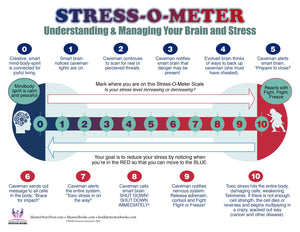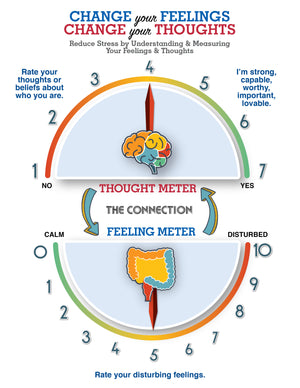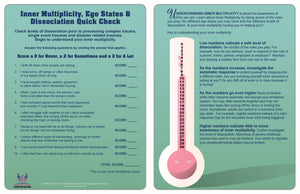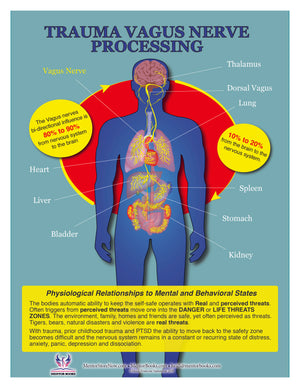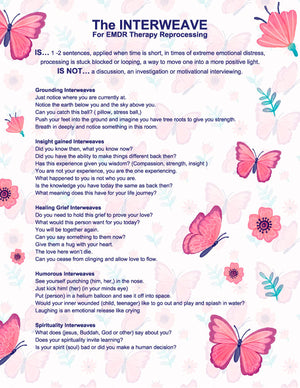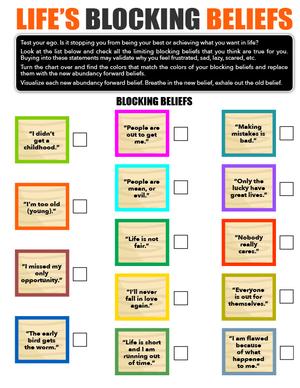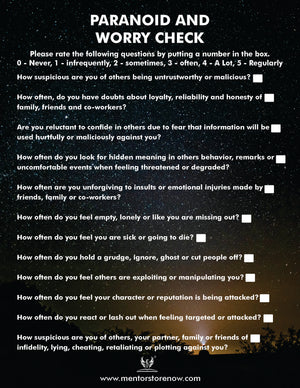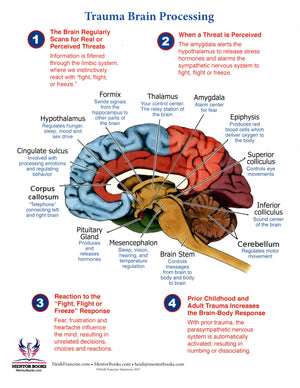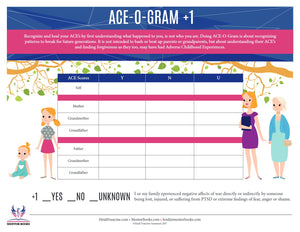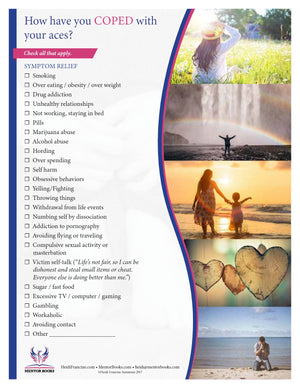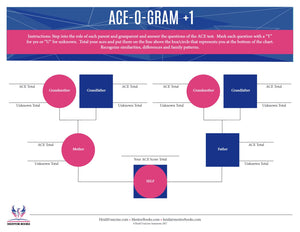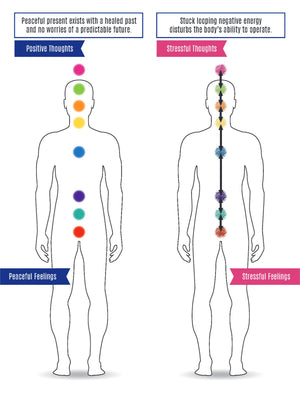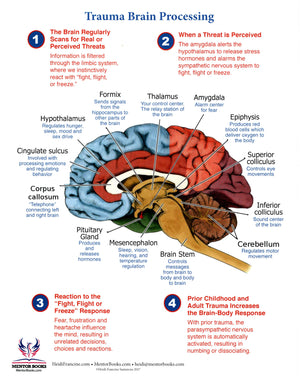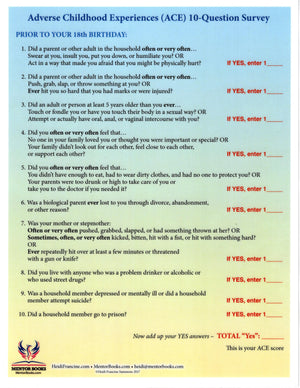{"id":2208737132647,"title":"Stress-O-Meter Chart","handle":"stress-o-meter-cbt-chart","description":"\u003ch1\u003eLearn or teach how stress influences decision making, and how thoughts and feelings are interconnected\u003c\/h1\u003e\n\u003ch5\u003eBased on Cognitive Behavioral Therapy (CBT) this chart teaches clients, patients, colleagues, friends, or family the relationship between stress, our body's, and our thoughts! Also a great tool for teaching people how to deal with stress, or stress management.\u003c\/h5\u003e\n\u003ch2\u003eWere you or they in a calm, logical head space to make a rationale decision?\u003c\/h2\u003e\n\u003cp\u003eStart with the brain-body stress response side. Have a patient, client, or person you know (such as yourself! recount an instance in which they got in a bad argument, made a bad decision, or otherwise acted passionately and irrationally. Then, ask them how stressed they were from a 1 to 10, and have them read the different levels of stress that influence their physiological states. Have them read all of the levels, or just the one they selected, as this will simply help them on their journey of psycho-education. After that, ask them or yourself if they were in a position to make a level headed, rationale decision. Then, ask them to what degree did their thoughts influence their feelings, and how did their feelings alter their thoughts.\u003c\/p\u003e\n\u003ch2\u003eUnderstanding the relationship between thoughts and feelings\u003c\/h2\u003e\n\u003cp\u003eNow, flip the chart over to the \"Change your thoughts, change your feelings,\" side. This Stress Management technique is great for educating people about how their thoughts and feelings are interconnected. Simply have your colleague, patient, client, or self rate their beliefs about themselves from scale of one to ten. Then, have them rate their disturbing feelings. Compare \u0026amp; contrast the two with your subject or self, and how these two parts of self inter-mingle and feed on one another.\u003c\/p\u003e\n\u003ch3\u003e\u003c\/h3\u003e\n\u003cul\u003e\n\u003cli\u003edouble sided chart\u003c\/li\u003e\n\u003cli\u003efree dry erase marker\u003c\/li\u003e\n\u003cli\u003elamenated for continuous use\u003c\/li\u003e\n\u003c\/ul\u003e\n\u003cp\u003e \u003c\/p\u003e","published_at":"2019-04-24T15:34:54-07:00","created_at":"2019-04-24T16:36:37-07:00","vendor":"Mentor Books West","type":"Chart","tags":["behavioral therapy","brain","brain education","feelings","how to deal with stress","mindfulness","psycho education","psychological education","psychology","Single Chart Bundle 2","Stress management","thoughts"],"price":1000,"price_min":1000,"price_max":1000,"available":true,"price_varies":false,"compare_at_price":null,"compare_at_price_min":0,"compare_at_price_max":0,"compare_at_price_varies":false,"variants":[{"id":20600276779111,"title":"Default Title","option1":"Default Title","option2":null,"option3":null,"sku":"","requires_shipping":true,"taxable":true,"featured_image":null,"available":true,"name":"Stress-O-Meter Chart","public_title":null,"options":["Default Title"],"price":1000,"weight":3,"compare_at_price":null,"inventory_quantity":-43,"inventory_management":null,"inventory_policy":"deny","barcode":"","requires_selling_plan":false,"selling_plan_allocations":[]}],"images":["\/\/mentorstorenow.com\/cdn\/shop\/products\/Chart-Stress-O-Meter2_1.jpg?v=1557520410","\/\/mentorstorenow.com\/cdn\/shop\/products\/Chart-Stress-O-Meter.jpg?v=1557520410"],"featured_image":"\/\/mentorstorenow.com\/cdn\/shop\/products\/Chart-Stress-O-Meter2_1.jpg?v=1557520410","options":["Title"],"media":[{"alt":null,"id":1477905252455,"position":1,"preview_image":{"aspect_ratio":1.294,"height":2550,"width":3300,"src":"\/\/mentorstorenow.com\/cdn\/shop\/products\/Chart-Stress-O-Meter2_1.jpg?v=1557520410"},"aspect_ratio":1.294,"height":2550,"media_type":"image","src":"\/\/mentorstorenow.com\/cdn\/shop\/products\/Chart-Stress-O-Meter2_1.jpg?v=1557520410","width":3300},{"alt":null,"id":1477876252775,"position":2,"preview_image":{"aspect_ratio":0.773,"height":3300,"width":2550,"src":"\/\/mentorstorenow.com\/cdn\/shop\/products\/Chart-Stress-O-Meter.jpg?v=1557520410"},"aspect_ratio":0.773,"height":3300,"media_type":"image","src":"\/\/mentorstorenow.com\/cdn\/shop\/products\/Chart-Stress-O-Meter.jpg?v=1557520410","width":2550}],"requires_selling_plan":false,"selling_plan_groups":[],"content":"\u003ch1\u003eLearn or teach how stress influences decision making, and how thoughts and feelings are interconnected\u003c\/h1\u003e\n\u003ch5\u003eBased on Cognitive Behavioral Therapy (CBT) this chart teaches clients, patients, colleagues, friends, or family the relationship between stress, our body's, and our thoughts! Also a great tool for teaching people how to deal with stress, or stress management.\u003c\/h5\u003e\n\u003ch2\u003eWere you or they in a calm, logical head space to make a rationale decision?\u003c\/h2\u003e\n\u003cp\u003eStart with the brain-body stress response side. Have a patient, client, or person you know (such as yourself! recount an instance in which they got in a bad argument, made a bad decision, or otherwise acted passionately and irrationally. Then, ask them how stressed they were from a 1 to 10, and have them read the different levels of stress that influence their physiological states. Have them read all of the levels, or just the one they selected, as this will simply help them on their journey of psycho-education. After that, ask them or yourself if they were in a position to make a level headed, rationale decision. Then, ask them to what degree did their thoughts influence their feelings, and how did their feelings alter their thoughts.\u003c\/p\u003e\n\u003ch2\u003eUnderstanding the relationship between thoughts and feelings\u003c\/h2\u003e\n\u003cp\u003eNow, flip the chart over to the \"Change your thoughts, change your feelings,\" side. This Stress Management technique is great for educating people about how their thoughts and feelings are interconnected. Simply have your colleague, patient, client, or self rate their beliefs about themselves from scale of one to ten. Then, have them rate their disturbing feelings. Compare \u0026amp; contrast the two with your subject or self, and how these two parts of self inter-mingle and feed on one another.\u003c\/p\u003e\n\u003ch3\u003e\u003c\/h3\u003e\n\u003cul\u003e\n\u003cli\u003edouble sided chart\u003c\/li\u003e\n\u003cli\u003efree dry erase marker\u003c\/li\u003e\n\u003cli\u003elamenated for continuous use\u003c\/li\u003e\n\u003c\/ul\u003e\n\u003cp\u003e \u003c\/p\u003e"}


